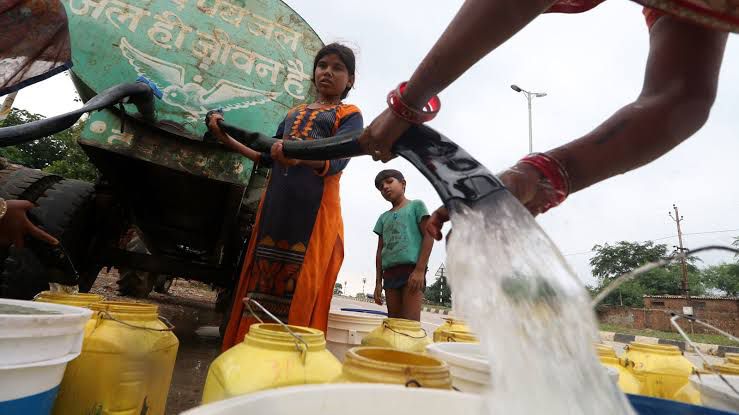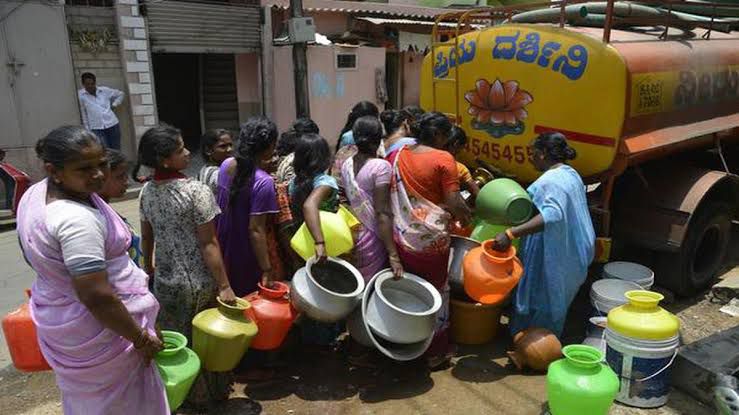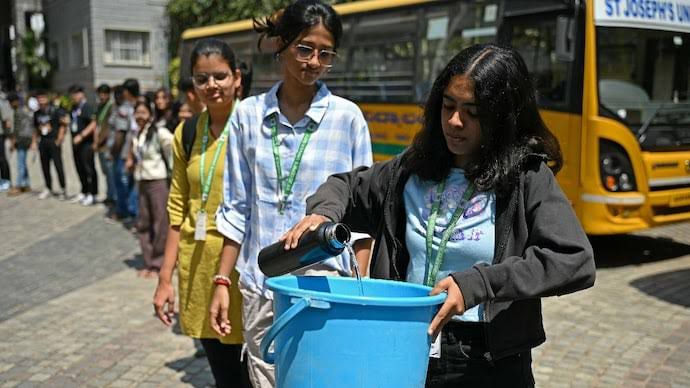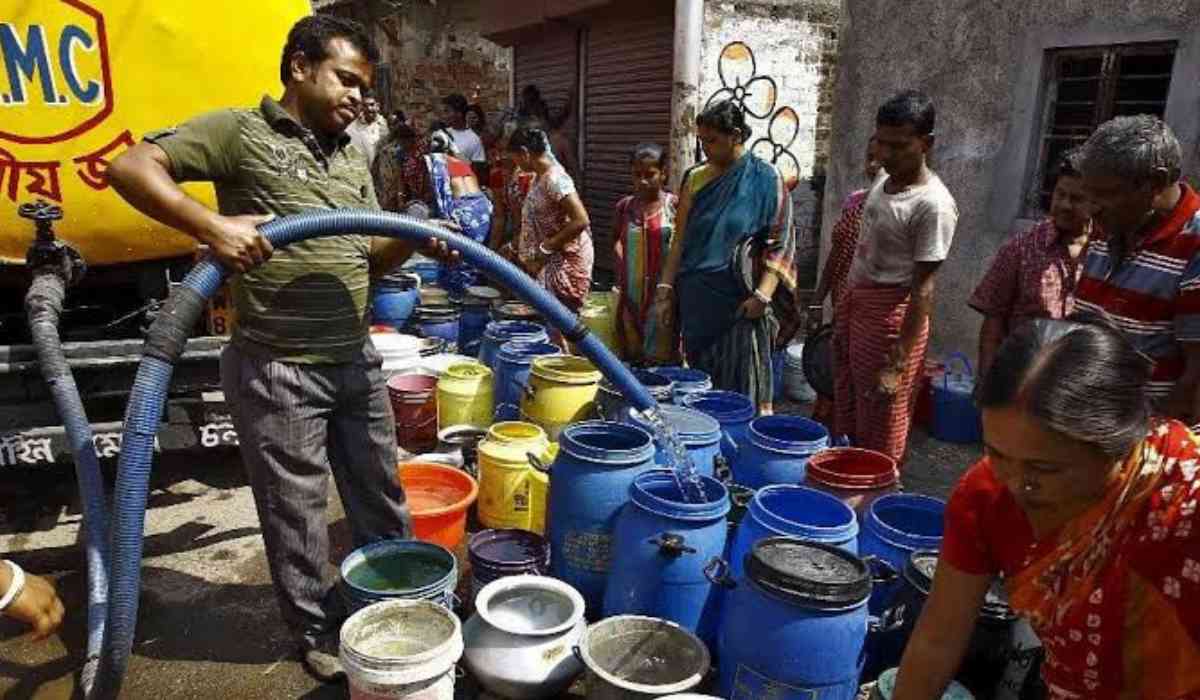Amid the water scarcity crisis and rising tanker costs, the Bengaluru district administration has set a fix price on the water tanks, following complaints of extortion by tanker owners and a proposal to regulate water rates by the Bangalore Water Supply and Sewerage Board (BWSSB) on behalf of Bruhat Bengaluru Mahanagara Palike (BBMP) to regulate water rates.
The rates have been fixed at a maximum price of ₹1,200 for a 12,000-liter load of water, for a four-month period. The decision to limit tanker prices arises amid increasing demand and surging costs of tankers, especially as all taluks in the Bengaluru Urban district are designated as drought-affected areas. Whitefield and Varthur are some of areas worst hit by the drinking water crisis.
As suggested by a technical advisory committee, Bengaluru's Urban Deputy Commissioner, K.A. Dayananda, has released a circular establishing rates for 200 private tankers contracted for a four-month period. The order also imposes Goods and Services Tax (GST) on water tanker businesses, which are decided upon by the technical committee's recommendations, especially in light of the declaration of drought that affects all taluks in the Bengaluru Urban district.
Water Tankers Fixed Rates
At present, the price of a 12,000-liter tanker load ranges from ₹1,800 to ₹2,500, varying according to the locality.
According to the Bengaluru district administration, with immediate effect, the prices are as follows: ₹600 for a 6000-liter water tanker, ₹700 for an 8000-liter water tanker, and ₹1,000 for a 12,000-liter water tanker, all within a 5-kilometer radius.

For distances ranging from beyond 5 kilometers up to 10 kilometers, the rates have been adjusted slightly higher. A 6000-liter water tanker will now cost Rs 750, an 8000-liter water tanker Rs 850, and a 12,000-liter water tanker Rs 1200.
The order doesn't mention the price for tanker loads beyond 10 kilometers, which water tanker dealers say has become common practice now.
Currently, 200 private tankers have been requisitioned under the Disaster Management Act, 2005 by BWSSB and BBMP to provide free water delivery to impoverished areas in 110 villages, as well as in former CMC and TMC regions.
Water Crisis In Karnataka
Karnataka is facing a worse water scarcity crisis due to insufficient rainfall in 2023, a situation attributed by the Indian Meteorological Department to the El Niño phenomenon. The severity of the issue is highlighted by the presence of water tankers at the residence of Karnataka Chief Minister Siddaramaiah on Kumara Krupa Road in Bengaluru.

According to Siddaramaiah, 109 of Karnataka's 136 taluks are severely affected by the drought, and 123 of the state's 136 taluks have been officially designated as affected. The Karnataka government has responded by announcing plans to set up control rooms and helplines at the taluk level to handle issues relating to water. Furthermore, task forces at the taluk level, under the direction of local MLAs, have been established to guarantee the distribution of water and a sufficient supply of feed for livestock.
The Karnataka government convened a crucial meeting earlier this week to discuss the dire water crisis that is plaguing the city. In the Legislative Assembly, Deputy Chief Minister DK Shivakumar declared that the government would prioritise water management and irrigation projects over other initiatives.
"Developing irrigation projects and tank filling are the top priorities. Roads and other projects will be tackled later. We've already spoken with the Chief Minister about this," Mr. Shivakumar stated.
In order to meet Bengaluru's water demand, the Deputy Chief Minister, who oversees Bengaluru Development, announced the acquisition of private tankers and borewells. He disclosed that, despite being close to Sankey Lake, the borewell at his home in the state capital of Sadashivanagar had dried up for the first time. Milk tankers will also be converted for use as an additional water source.
These days, water tankers are frequently seen on Bengaluru's highways. According to Shivakumar, the prices have increased to Rs 1,500 to Rs 1,800 per tanker due to increased demand. Normally, they would cost between Rs 700 and Rs 800 per tanker.

The state's water tanker owners have been forewarned by the Deputy CM that if they do not register their tankers with the authorities by the deadline of March 7, the government will seize them.
Just 10%, or 219 tankers, of Bengaluru City's 3,500 water tankers are registered with the authorities. If they don't register by the deadline, the government will confiscate them," he declared.
"Water is a resource that belongs to the government and is not the property of any one person. It is legal for the government to seize authority over water supplies. The Bangalore Water Supply and Sewerage Board officials have been told to be ready to supply water from regions with an abundance of groundwater. 210 tankers are currently being used by the BWSSB to supply water. The provision of water will not be impeded by the election code of conduct," he continued.
ⒸCopyright 2024. All Rights Reserved Powered by Vygr Media.






















